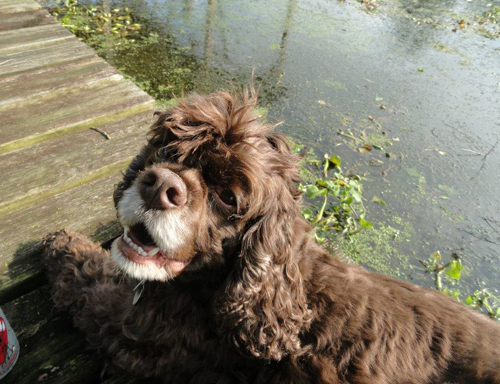‘Puppy Mill Bill’ gets green light

Suffolk County is poised to become the first county in New York State to regulate the sale of animals, as the county legislature unanimously approved a measure on Tuesday that sets a framework for discouraging pet retailers from buying from unsafe breeders.
If signed into law, the bill — unofficially dubbed the “puppy mill bill” — aims to safeguard the animals themselves, as well as consumers who have been burdened by unexpected medical costs of caring for their newly purchased pets.
Sponsored by Legis. Jay Schneiderman (I-Montauk), the law sets restrictions for pet stores on which breeders they are allowed to purchase dogs from, and how the pets they purchase — and later sell to the general public — are kept and cared for.
Once signed by county executive Steven Bellone, pet stores will not be able to purchase animals from breeders who have received certain types of violations from the U.S. Department of Agriculture, which regulates breeders.
These violations include:
• “A direction violation from the U.S. Department of Agriculture (which regulates breeders) within the past two years;
• ‘No access’ violations on the two most recent inspection reports from the USDA;
• Three or more different indirect violations, other than ‘no access violations,’ on the most recent USDA reporter;
• One or more recurring indirect violations on the most recent USDA report.”
Animal advocates have long been calling for regulations on pet dealers, stating that many animals being sold by dealers in retail shops are bred in substandard conditions — in outlets are commonly referred to as puppy mills — and often have health problems due to inbreeding.
Gov. Andrew Cuomo signed a law in January giving local municipalities in New York State the ability to more closely regulate pet dealers.
Former Legis. Jon Cooper (D-Llyod Harbor) had pitched similar regulations in 2011, however it was eventually pulled since local regulation of pet dealers was not permitted until Gov. Cuomo signed January’s legislation allowing local municipalities to do so. The county later passed a voluntary rating system for pet stores.
Pam Green, executive director of Calverton’s Kent Animal Shelter and one of four members of a subcommittee that helped draft the legislation, said that “the unsuspecting consumer may be purchasing a financial nightmare” when buying one such dog.
“Puppy mill cast-aways I call them,” she said. “Most of the time they have various medical issues and social and behavioral issues because they have been kept in wire cages and away from human interaction.”
Ms. Green said added that transparency and oversight has long been needed.
“It’s just a victorious day. It’s an exciting day for animal welfare advocates,” Ms. Green said. “We’re not going to tolerate people making money off the backs of these suffering animals.”
Pet dealers have claimed that they are not getting their dogs from puppy mills. And Mr. Schneiderman said that after much work was done on the legislation, the business owners were in fact welcoming to the legislation.
“This sends a message: we want the public to know we’re not going to have a puppy mill dog,” Mr. Schneiderman said, referring to the merchants’ point of view.
She said an oversight committee made up of animal welfare advocates will frequent pet stores, watching what breeders they are buying their animals from. Mr. Schneiderman said that the bill shouldn’t be too much of a burden to enforce, due to the low number of pet retailers; he said there are currently nine retail dog stores in the county.
Dealers will be hit with a $500 fine for each violation, according to the legislation.







